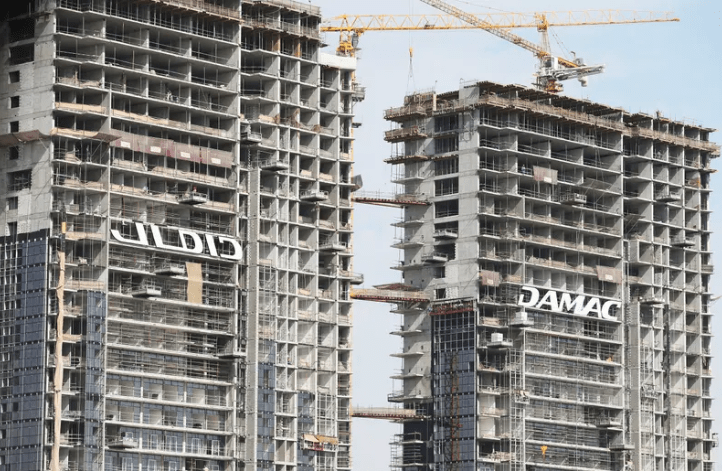10,000 villas are in short supply in Dubai as demand exceeds supply.

Dubai is grappling with a shortage of around 10,000 villas, as the emirate’s booming real estate market struggles to keep pace with surging demand from buyers, industry experts told Al Arabiya English.
The scarcity of villas, a popular housing option in the UAE emirate, is driving up prices and pushing developers to launch new projects in emerging areas of the city, say experts. The trend reflects Dubai’s growing appeal as a long-term residence and investment destination despite global economic uncertainties.
Supply crunch amid population boom
CEO of KASCO Developments Issa Abdul Rahman told Al Arabiya English that Dubai’s villa market is facing unprecedented pressure as the city’s population continues to expand rapidly.
“Villas and townhouses have always been a popular option in Dubai due to a relatively low cost of entry and maintenance compared to other major global hubs,” Rahman said. “Estimates place the shortfall around 10,000 villas.”
Rahman pointed to Dubai’s evolving reputation as a key factor driving demand.
“As Dubai’s population continues to grow, particularly as more people view Dubai as less of a transitional city and more as a place to settle down, I expect this demand to continue growing,” he added.
Chairman and managing director of Acube Developments Ramjee Iyer, echoed the sentiment, citing demographic shifts as the primary reason behind this shortage.
“The primary contributing factors are a rising population and an influx of expat families relocating to the emirate,” Iyer told Al Arabiya English. “This trend is compounded by a lack of new villa projects that can accommodate the escalating need for larger living spaces, resulting in the villa market struggling to keep pace with requirement.”
Developers race to explore new strategies
As the supply-demand imbalance persists, developers are exploring new strategies to address the shortage, with Rahman highlighting a trend toward more efficient land use in new communities.
“New communities seem to be more efficient in their utilization of space to maximize the number of villas while still providing all the services the community needs,” he said.
However, this approach comes with trade-offs.
“Due to the natural space constraint of the city, more of these communities are being built farther away from the central hubs. While this may require a longer commute, it also offers a quieter, more suburban lifestyle with enhanced privacy.”
Villas versus apartments
As Dubai’s real estate market continues to evolve, investors face the perennial question: Villas or apartments?
Rahman believes current market dynamics favor villas. “With the tightness we are seeing in the market for villas and townhouses, I expect them to appreciate more than apartments at this stage of the cycle,” he said.
However, he also noted that apartments tend to be a more liquid asset and can offer good returns on investments.
Market outlook
Despite global economic headwinds, industry leaders remain optimistic about Dubai’s real estate market prospects through 2025.
Rahman anticipates continued strength in the market. “Generally, more of the same in 2024 – especially as the UAE’s strategic initiatives to enhance sustainability and quality of life pay off,” he predicted. “As global uncertainty increases,
Dubai’s appeal as a safe-haven investment will only grow. I expect the market to continue strengthening throughout the year.”
Iyer foresees robust growth driven by both domestic and international demand.
“We expect to see a continued upward trajectory in 2025, driven by a combination of strong demand from both local and international buyers,” he said. “The anticipated influx of expats and global investors will likely lead to increased sales in both luxury and mid-range segments. We also foresee a particular surge in demand for properties that offer integrated living solutions, as buyers increasingly prioritize convenience and lifestyle.”
Founder of Sunrise Capital Yogesh Bulchandani, offered a more granular outlook. “We are very optimistic and predict a balanced growth across various segments, particularly in urban developments that cater to the needs of young professionals and families,” he told Al Arabiya English.
“The demand for affordable housing options will also rise, as more people seek value without compromising on quality. Overall, we believe the market will stabilize, providing opportunities for both buyers and investors,” he added.
Emerging hotspots
As Dubai’s real estate landscape evolves, new areas are emerging as investment hotspots. Bulchandani highlighted two regions poised for significant growth in 2025.
“We expect areas like Dubai South and the Mohammed Bin Rashid City to become the hotspots,” he said. “Dubai South, with its strategic location near the Expo 2020 site and the Al Maktoum International Airport, is poised for rapid development and investment,” Bulchandani said.
He further said: “Meanwhile, Mohammed Bin Rashid City, with its focus on luxury living and integrated community features, will attract affluent buyers looking for a high-quality lifestyle.”
According to Bulchandani, the regulatory framework has been instrumental in the growth of Dubai’s real estate sector.
“Recent reforms, such as the introduction of the Real Estate Regulatory Agency’s (RERA) guidelines and the establishment of the Dubai Land Department’s initiatives, have all enhanced transparency and security for our industry,” he explained.






